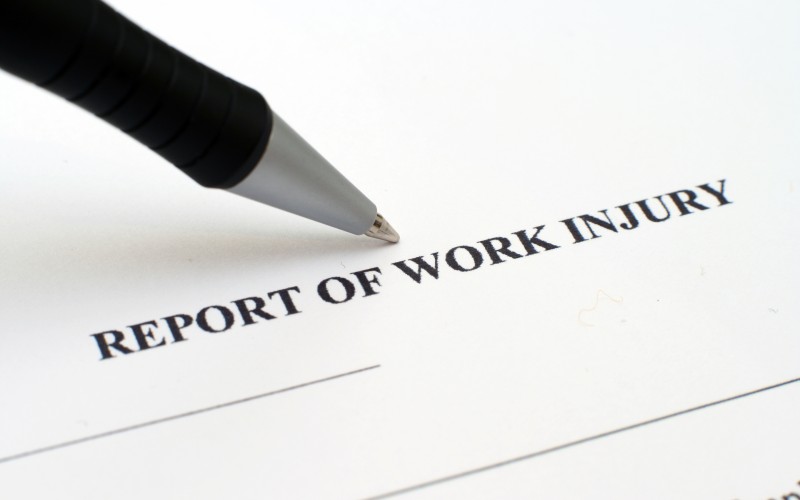
Whilst no one ever wants to be involved in an accident whether that be at work, on the roads or even at the local supermarket, if you can’t avoid it then it is very important to preserve the evidence afterwards and ensure the details are recorded in an accident report.
Workplace accidents should be reported as soon as possible after the event, which depending on your organisations accident reporting procedures, may be to your line manager or a separate health and safety representative. It is very important to follow your internal reporting procedures in relation to the accident itself but also relating to any absence which may follow as a result of your injury.
One of the reasons the incident must be reported as soon as possible is because your employer may then be under an obligation to complete a RIDDOR report. A RIDDOR report is logged with the Health and Safety Executive (HSE) for work related accidents where there is a reportable injury as defined in the Reporting of Injuries, Diseases and Dangerous Occurrences Regulations 2013 and should be submitted by the employer or person in control of the premises where the accident took place. Where the employee is going to be incapacitated and unable to work for 7 consecutive days suffering from a reportable injury, the RIDDOR report must be made within 15 days of the accident. Reportable injuries include but are not limited to death, amputations, loss of sight, burns and fractures and there are separate requirements for occupational diseases and gas related incidents.
Unfortunately, not all organisations and employers are as compliant with accident recording and reporting as they should be. If you are involved in an accident and are facing resistance from management over completing an accident report then we would still recommend keeping your own record of what happened. It may also be helpful to put your own statement or report in writing, by letter or email, to your line manager, HR and/or health and safety representative. You should stick to the facts and present the sequence of events or circumstances in a clear and concise manner, in particular avoiding any aggressive or abusive language, to ensure that the accident and any concerns you may have about the lack of a formal report, are raised with management in a professional and respectful way.
We understand it can be a concern for employees when they don’t want to be perceived as causing trouble or rocking the boat but it is very important that accidents and injuries are recorded. Logging an accident report may trigger internal investigations into what happened and can help organisations learn from past experiences. If similar incidents keep occurring and patterns can be identified then they should be reviewing their health and safety training and their risk assessments to make the workplace a safer environment for all.
Having a written record can help as an aid if a personal injury claim is made for any injuries and financial losses but also if any grievance or disciplinary proceedings were to follow either against you or a colleague if they were the cause of putting you in danger. Whilst this is rare, it can help to have access to specialist employment law advice so that you know your rights going forward and it certainly should not put off injured parties from pursuing their right to claim following an accident at work. As a full service law firm, Thorntons’ not only have a specialist Personal Injury Team but we have access to an experienced Employment Law team including 4 Accredited Specialists who are available to work with us discussing any concerns and offering advice to our clients.
If you have been injured in an accident at work and would like to discuss a potential personal injury claim, please contact our Specialist Personal Injury Team on 0800 731 8434.
